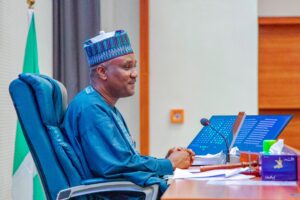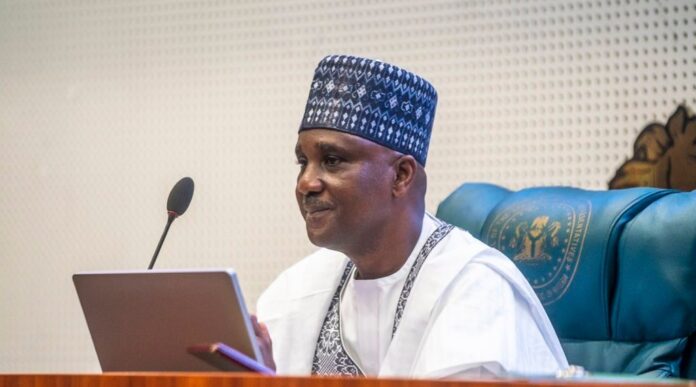Tajudeen Abbas, the Speaker of the House of Representatives, expressed his appreciation for the legislative accomplishments of his colleagues during the first session of the 10th House.
With 89 bills passed and 679 motions deliberated upon, the lawmakers showcased their dedication to addressing the pressing challenges facing Nigerians, including poverty, insecurity, and unemployment.
In the absence of the Speaker, Deputy Speaker Benjamin Kalu presided over the plenary at the beginning of the second session. He commended the federal lawmakers for their remarkable contribution to shaping the nation’s economic landscape, reforming key sectors, and strengthening democratic institutions.
Notably, a record-breaking 1,351 bills were introduced, with 89 successfully passed, exemplifying the House’s commitment to legislative efficiency and effectiveness.

Several key bills were highlighted, including the Access to Higher Education Act, 2024, known as the Students Loan Bill, which aims to make higher education more accessible.
Additionally, the Electricity Act (Amendment) Bill, 2023, seeks to enhance the efficiency and sustainability of Nigeria’s electricity sector by promoting investment in renewable energy sources.
The Federal Audit Service Act (Amendment) Bill, 2023, was also emphasized for its role in strengthening financial oversight and transparency, ensuring better management of public funds and reducing corruption.
In terms of motions, an impressive 679 were introduced, indicating a proactive approach to addressing the concerns of the people.
Through public hearings, investigative committees, and rigorous debates, the House held the executive branch accountable, ensuring the judicious use of public funds and alignment of government policies with the needs of the people.
Notable outcomes of their oversight activities include the recovery of misappropriated funds and rectification of administrative inefficiencies.
Despite these achievements, Deputy Speaker Kalu reminded his colleagues that challenges persist. Nigeria continues to grapple with issues of poverty, unemployment, and inequality.
The expectations of constituents remain high, and they look to the House of Representatives to address critical matters such as security, the economy, healthcare, education, and infrastructure.
As the second session begins, the legislators are urged to maintain their commitment and work diligently to overcome these challenges, making a positive impact on the lives of Nigerians nationwide.




